Security for Medical Facilities: Essential Strategies to Protect Patients and Staff
In today’s evolving healthcare environment, security for medical facilities has become a top priority. Hospitals, clinics, urgent care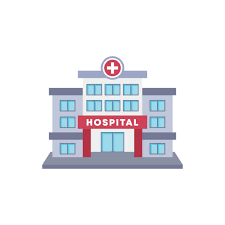 centers, and outpatient facilities are responsible not only for delivering care but also for ensuring the safety of patients, staff, and sensitive data. As threats grow more complex—from physical violence to data breaches—healthcare administrators must adopt comprehensive security strategies tailored to the unique challenges of medical environments.
centers, and outpatient facilities are responsible not only for delivering care but also for ensuring the safety of patients, staff, and sensitive data. As threats grow more complex—from physical violence to data breaches—healthcare administrators must adopt comprehensive security strategies tailored to the unique challenges of medical environments.
Implementing effective security for medical facilities: is essential to safeguard not just physical assets but also the well-being of everyone involved.
This article explores the critical role of security in healthcare settings, including physical protection, access control, cybersecurity, staff safety, patient privacy, and emergency preparedness.
Understanding the nuances of security for medical facilities: can greatly enhance emergency response plans.
Why Security in Healthcare Settings Matters
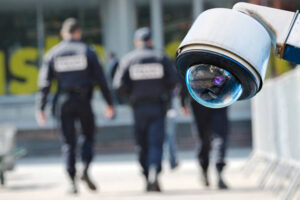
Integrating advanced technologies into security for medical facilities: helps mitigate risks and provides real-time data.
Medical facilities operate 24/7 and serve a wide range of people, including those in crisis, individuals with mental health issues, and vulnerable populations. These settings can be unpredictable, with high emotions, stress, and urgent medical needs all converging in one location. With this environment comes the risk of:
Creating a safe environment is a core aspect of security for medical facilities: and requires collaboration across departments.
-
Patient-on-patient violence
-
Aggressive visitors or family members
Effective management of security for medical facilities: includes ongoing training and development for staff.
-
Unauthorized individuals accessing restricted areas
-
Drug theft and medication misuse
-
Data privacy breaches
-
Natural disasters or active shooter scenarios
A comprehensive healthcare security plan is no longer optional—it’s essential to maintain trust, ensure safety, and comply with legal requirements such as HIPAA and OSHA.
Security for medical facilities: must evolve continuously to address new threats and challenges.
Trained Security Officers Make a Difference
Professional security guards play a crucial role in maintaining a safe and controlled environment in healthcare facilities. These officers are specially trained to:
-
De-escalate tense or violent situations
-
Monitor entrances, lobbies, and patient areas
-
Prevent unauthorized access to restricted zones
-
Respond quickly to emergencies or disturbances
-
Escort staff or patients when needed
-
Patrol parking areas to deter theft and vandalism
Security guards should be trained in healthcare-specific scenarios, including handling patients with mental health conditions, recognizing signs of drug-seeking behavior, and understanding privacy laws.
Regular assessments of security for medical facilities: can identify vulnerabilities and enhance protocols.
Armed vs. unarmed guards should also be considered based on the facility’s risk level, location, and patient population.
Access Control and Visitor Management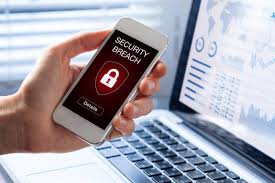
Access control is one of the most effective ways to protect sensitive areas within a healthcare facility. Hospitals contain multiple zones—emergency rooms, surgical units, ICU, pharmacies, data centers, and administrative offices—all of which must be properly secured.
Implementing strict access protocols is a fundamental aspect of security for medical facilities: and ensures only authorized personnel enter sensitive areas.
Key elements of access control include:
-
ID Badges for all employees and contractors
-
Electronic access cards for restricted areas
-
Visitor sign-in systems with printed badges
-
Security checkpoints at key entrances
-
Locked storage for narcotics and sensitive documents
By implementing strong access protocols, facilities can prevent unauthorized entry, reduce internal theft, and enhance accountability.
Protecting Sensitive Patient Data
Data breaches highlight the importance of robust security for medical facilities: and should never be overlooked.
While physical safety is vital, data security must also be prioritized. Healthcare organizations store massive amounts of sensitive information, including medical histories, insurance records, and financial data.
To comply with HIPAA regulations, medical facilities should:
-
Use encrypted communication systems
-
Secure electronic health records (EHRs) with strong firewalls
-
Implement role-based access for medical software
-
Regularly audit IT systems for vulnerabilities
-
Train staff on cybersecurity awareness
Cybersecurity breaches in healthcare can be devastating. In addition to financial losses, a compromised system can delay care, disrupt operations, and cause long-term reputational damage.
Emergency Response and Crisis Management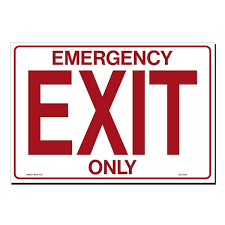
Every medical facility must be prepared for emergency situations, whether it’s a natural disaster, power outage, or violent intruder. Security teams should be fully integrated into the facility’s emergency management plan.
Developing a comprehensive plan around security for medical facilities: ensures preparedness for any crisis.
Key emergency preparedness strategies include:
-
Regular active shooter and lockdown drills
-
Emergency evacuation routes and clear signage
-
Backup generator and lighting systems
-
Direct coordination with local law enforcement
-
Internal mass alert systems for staff notifications
-
Emergency supply kits in secure locations
Security personnel should be trained to act as first responders in coordination with emergency medical teams. Their ability to remain calm and act swiftly during a crisis can save lives.
Security for medical facilities: also extends to creating awareness among staff about potential threats.
Parking Lot and Exterior Security
Hospital parking lots are often overlooked as security risks, yet they are common locations for vehicle thefts, assaults, and accidents. Proper lighting, surveillance, and patrols are essential for maintaining exterior safety.
Addressing parking lot safety is a crucial part of security for medical facilities: to prevent theft and ensure staff safety.
Recommendations for parking lot security include:
-
Installation of high-definition surveillance cameras
-
Well-lit walkways and entrances
-
Mobile security patrols during peak hours
-
Panic buttons or emergency call boxes
-
Security escort services for night-shift staff
A secure exterior not only protects staff and patients but also creates a sense of safety that can enhance the overall patient experience.
The Human Factor: Staff Safety and Training

Effective training programs focused on security for medical facilities: help cultivate a culture of safety.
Healthcare workers face high risks of workplace violence, especially in emergency rooms, psychiatric units, and long-term care settings. Nurses, doctors, and technicians should be included in safety training and encouraged to report all incidents.
Best practices include:
-
De-escalation training for frontline staff
-
Encouraging a “zero-tolerance” policy toward violence
-
Immediate access to security panic alarms
-
Coordination with security staff for high-risk patients
-
Behavioral threat assessments for patients showing warning signs
The mental health and well-being of staff are directly linked to a safe work environment. Investing in their security reduces turnover, absenteeism, and burnout.
Security Technology Integration
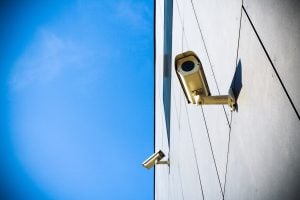
Modern security systems should be fully integrated, combining physical surveillance, access control, alarm systems, and cybersecurity into a single platform. Facilities benefit from real-time alerts, centralized monitoring, and smarter decision-making.
Emerging technologies play a vital role in improving security for medical facilities: and can transform how safety is managed.
Key technologies include:
-
AI-based surveillance for facial recognition and anomaly detection
-
Integrated dashboards for incident tracking
-
Mobile apps for guard communication and check-ins
-
IoT security sensors for environmental monitoring (e.g., smoke, gas leaks)
-
Biometric access scanners for restricted rooms
A connected system reduces response times and ensures a more proactive approach to threats.
Building a Culture of Safety
Security in medical facilities goes beyond cameras and guards—it requires a culture of safety that permeates every level of the organization. From administrators to nurses, everyone must be aligned on the importance of security protocols.
Fostering a culture of security for medical facilities: involves everyone from top management to frontline workers.
Leadership should:
-
Conduct regular security reviews and updates
-
Encourage transparent reporting of incidents
-
Reward compliance and vigilance
-
Include security in new employee onboarding
-
Foster a relationship of trust with security staff
When security becomes part of the organizational mindset, risks are reduced, and patients feel more confident in the care they receive.
Final Thoughts
Ultimately, prioritizing security for medical facilities: enhances trust and confidence among patients and staff.
Security for medical facilities is a multi-faceted responsibility that demands proactive planning, expert personnel, and cutting-edge technology. With growing threats both inside and outside healthcare environments, administrators must take strategic action to protect patients, employees, assets, and data.
Being proactive in security for medical facilities: is essential in today’s complex healthcare landscape.
Partnering with a professional security firm that understands the specific needs of healthcare settings can make all the difference. Whether you operate a large hospital or a small private clinic, investing in strong security measures is critical to maintaining safety, compliance, and trust.
Ensuring robust security for medical facilities: is a continuous journey that requires diligence.
LINKS:
https://hubsecurityandinvestigativegroup.com/10-trainings/
